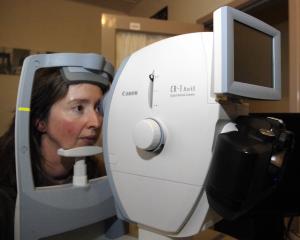More interest in alternative remedies is likely to feature in a post-antibiotic world, a University of Otago infectious diseases authority says.
Webster Centre for Infectious Diseases director Prof Kurt Krause said the antibiotic resistance problem had become urgent and decisions had to be made now to develop new antibiotics.
A major World Health Organisation report this week using data from 114 countries has concluded that without co-ordinated action, the world faces a post-antibiotic era.
It meant common infections and minor injuries that had been treatable could be deadly.
Renewed interest would also focus on treatments Western medicine abandoned in the antibiotic age, Prof Krause said.
This included topical treatments for infections and ''aggressive'' wound care management.
''I think it means we'll have to look at everything brand new. In this post-antibiotic era we'll be ... looking at things before antibiotics were on the scene.
''And I think it does suggest that preventive medicines and alternative medicines will all need to be looked at in a fresh way.''
It was not too late to develop new antibiotics and improve management of existing ones.
''It's something that as a society we have to come to grips with now and decide what it is we want to do.
''If we decide as a society antibiotics are a priority, we can make more antibiotics.
''Buried in all these dry figures there's a story, and the story is pharmaceutical agencies have pulled back from designing antibiotics, and funding agencies have pulled back from funding research on developing antibiotics,'' Prof Krause said.
Compounding the paucity of research and development, antibiotics had been poorly managed in clinical practice and overused in agriculture.
''Personally I think the time for using antibiotics in agriculture in a general or widespread sense has passed.''
New Zealand's antibiotic problem was not as severe as in other countries, but it could not afford to be complacent.
''While NZ has been fortunate to avoid the high levels of resistance seen in the most affected areas, it is important that ongoing surveillance continues for these organisms and that clear infection control policies and plans are in place.
''After all, even the most resistant of organisms are potentially only a plane trip away.''











